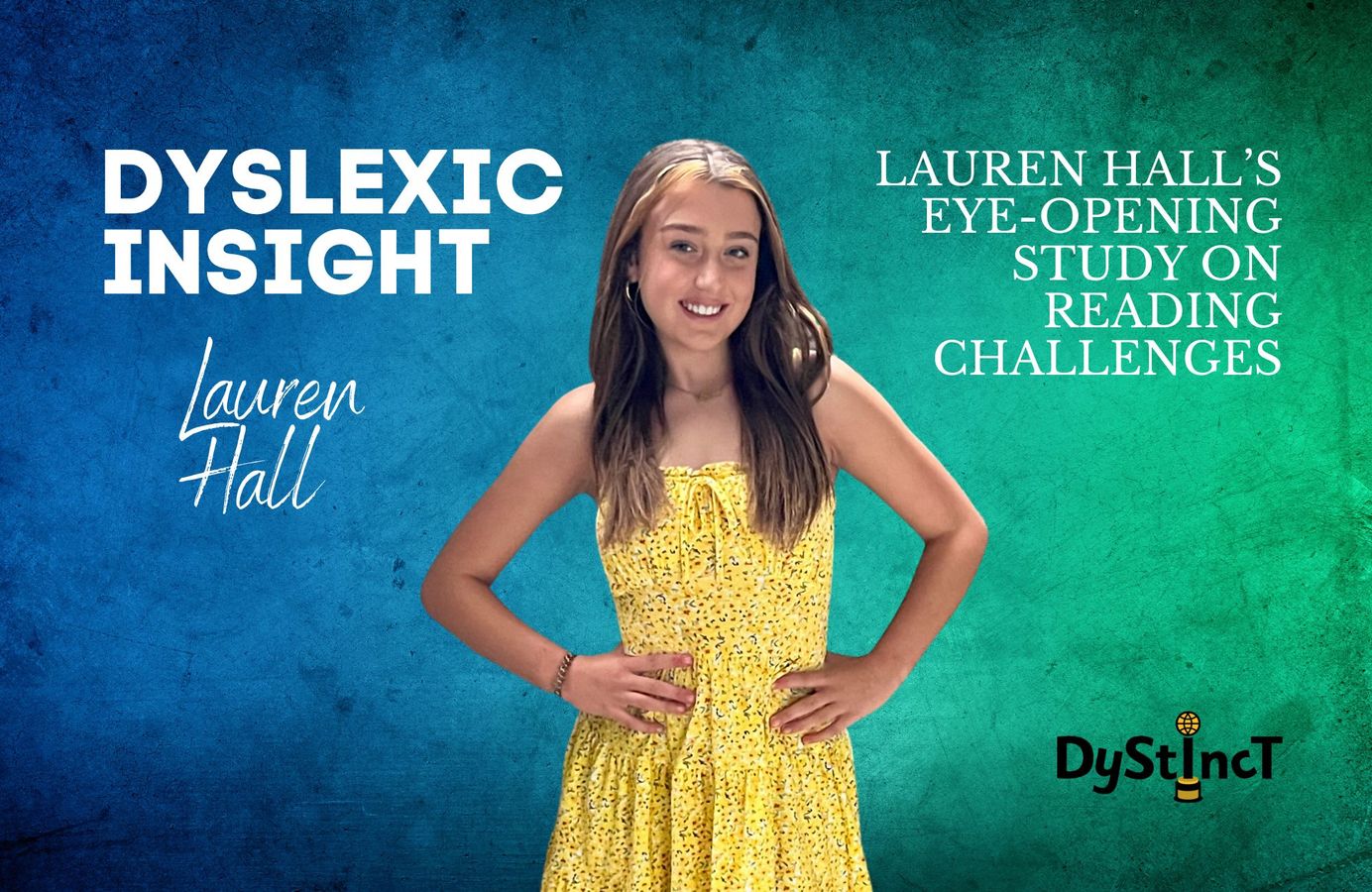
Issue 17: Dyslexic Insight: Lauren Hall’s eye-opening study on reading challenges
Lauren Hall, a 13-year-old with dyslexia from Steubenville, Ohio, turned her school-required science project into an eye-opening study, challenging teachers to read 'dyslexic' text; her findings showcased the difficulties dyslexic students face daily.
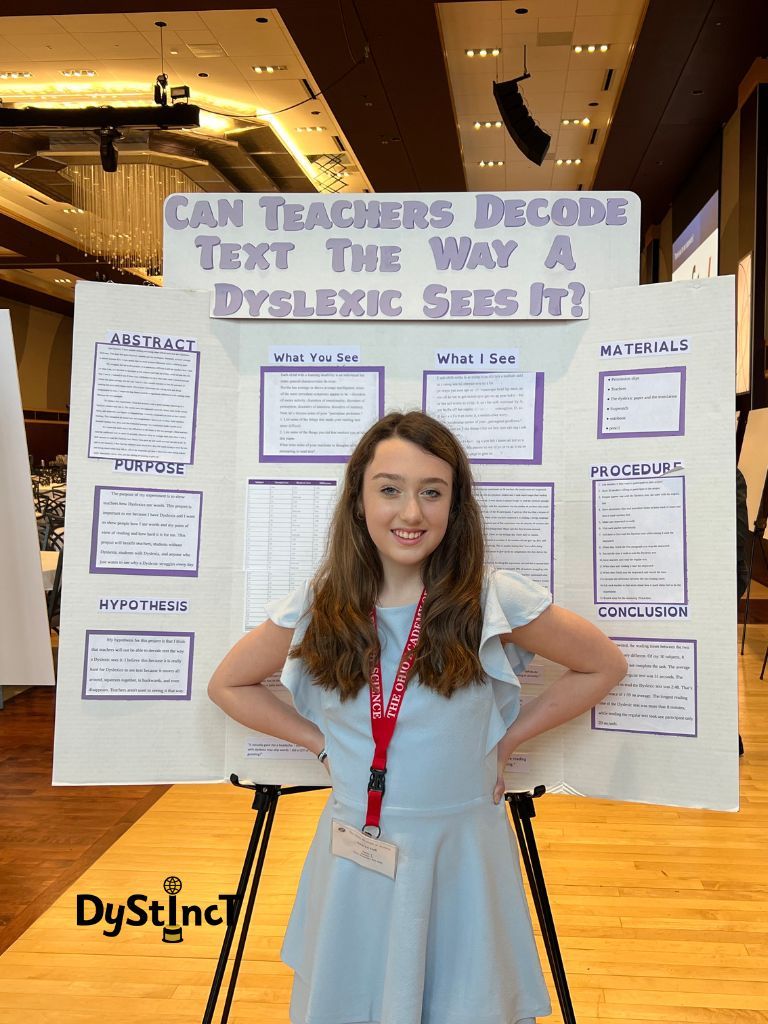
I am 13 years old and a Bishop John King Mussio Jr. High student from Steubenville, Ohio, USA. I play basketball and volleyball, and I have dyslexia. I was officially diagnosed and started receiving services at my school in second grade. I struggle, but I have come far thanks to my interventionist and some great teachers. At my school, all 6th and 7th grade students are required to do a science fair project. In my first year, I struggled with it. I had no interest in it and just didn't grasp the process. I dreaded doing it again in my 7th-grade year, but then my mom, my science teacher, and I brainstormed ideas that might be more personal and interesting to me. That led me to do a project centered around my dyslexia. My school is great with following my IEP and my accommodations, but I didn't feel like my teachers really understood what I was going through. That's when I decided that they should be the subject of this science fair project. I wanted them to see what their dyslexic students were seeing. So, I began my project, "Can teachers decode text the way a dyslexic student sees it?"
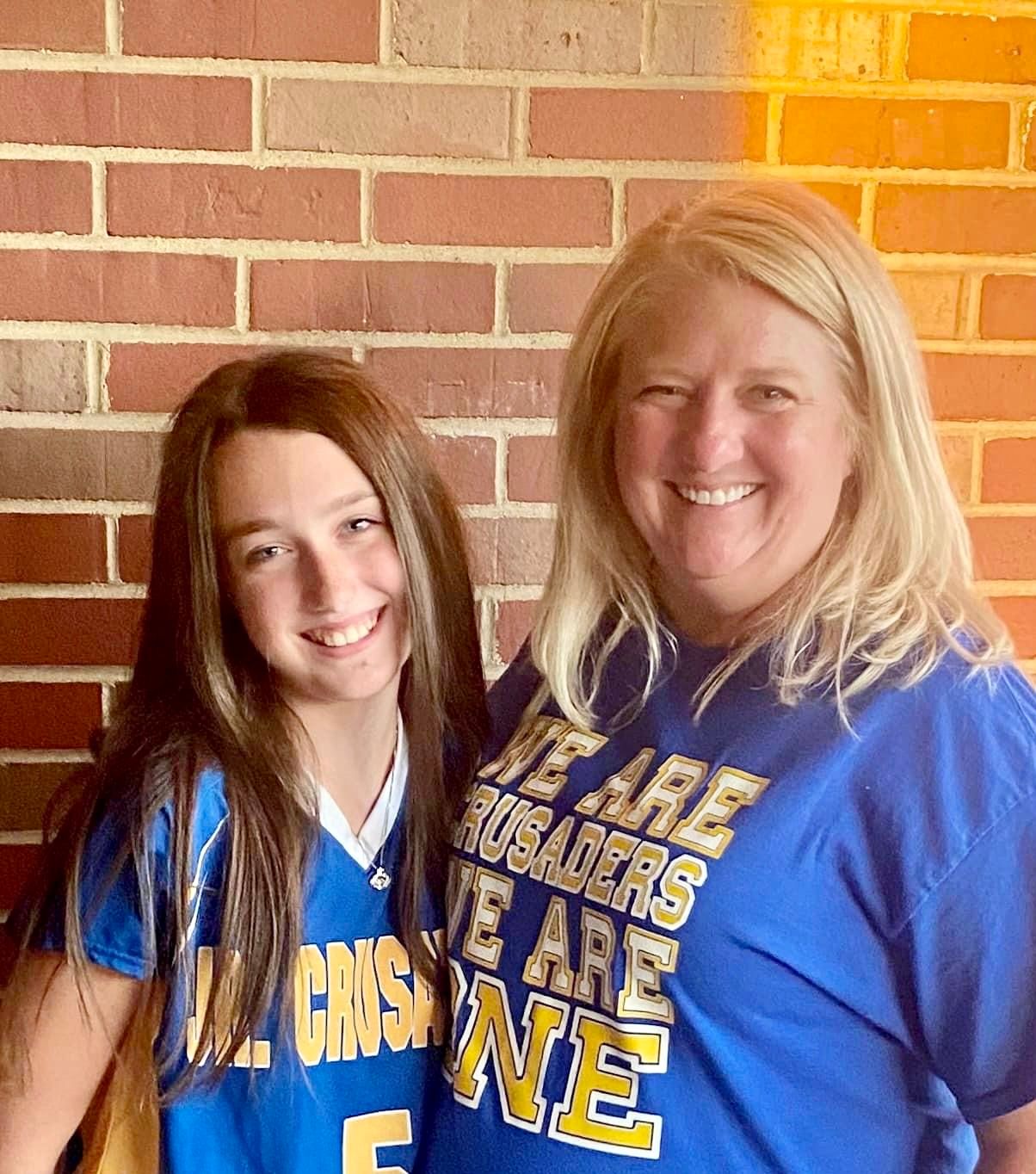
First, I found a sample of "dyslexic" text online. It was pretty accurate, but it wasn't moving and didn't show words that disappeared or faded as I saw them. I made a few changes to the text and printed that and the translation that a traditional reader would see. I interviewed 30 teachers from different schools and grades. I first timed them reading the dyslexic text, then timed them reading the translated text, expecting reading time to be much slower, having to decode the text as I see it. As I did my research and prepared my project, I decided that just timing the teachers was not enough. I wanted them to tell me how it felt having to do that. After my interviews, I proved my hypothesis - it took much longer for them to read the dyslexic text - 2 minutes longer. Of my 30 subjects, eight even gave up. They just quit. I reminded them that quitting isn't an option for me and my classmates.
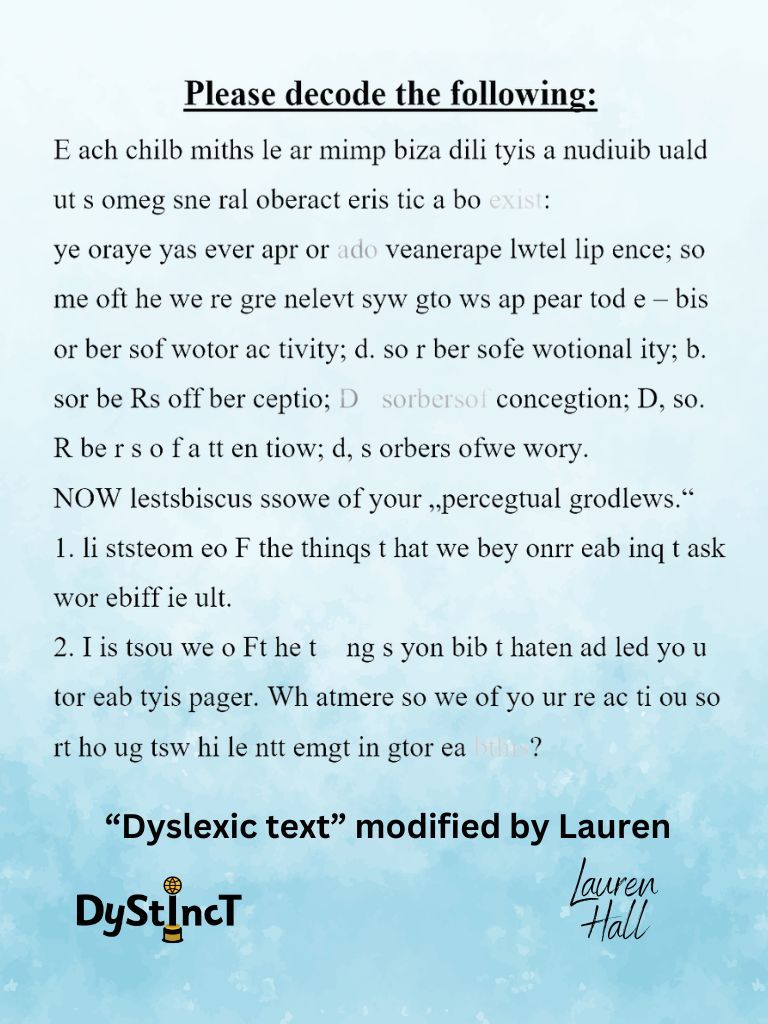
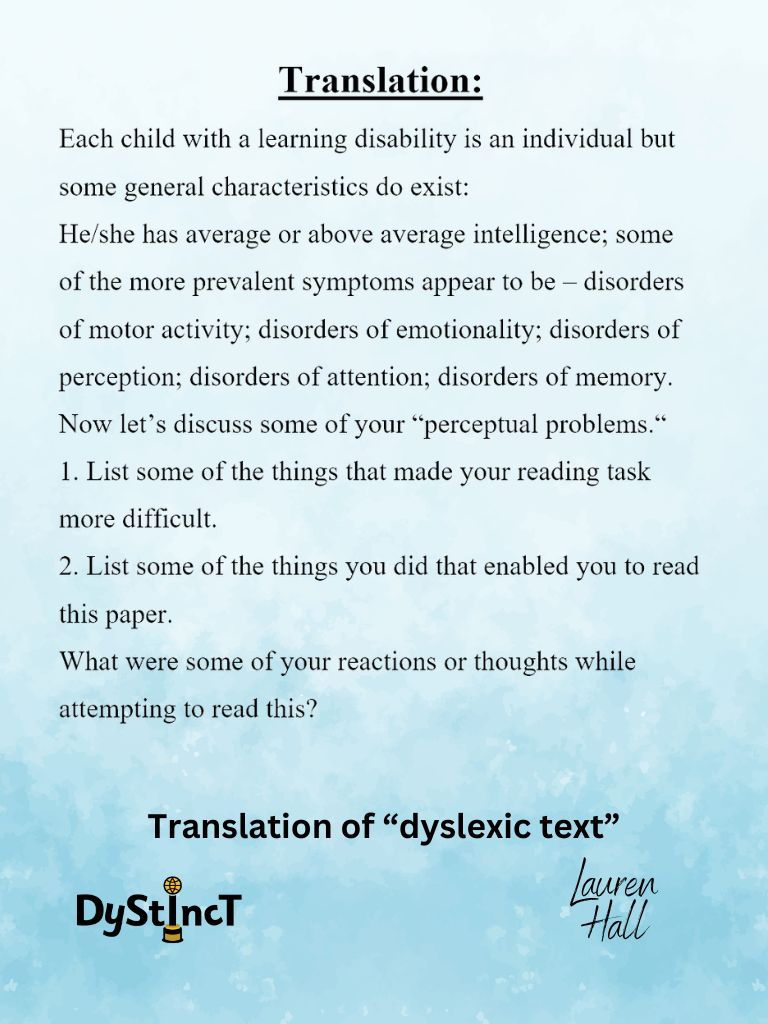
This post is for paying subscribers only
SubscribeAlready have an account? Log in


